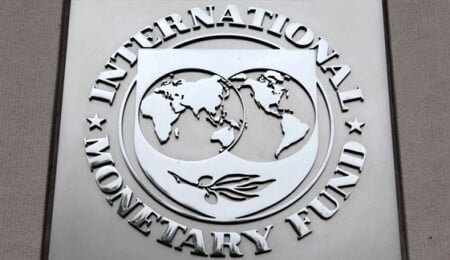IMF Praises Sotuh Cyprus Economy but Warns of Overheating

South Cyprus recorded robust economic and fiscal performance in 2024, according to the International Monetary Fund (IMF).

The IMF referenced Cyprus’ 4.3 per cent budget surplus and a reduction of public debt to 65 per cent of GDP.
In addition, in its annual report on Cyprus under article IV, approved by the executive board without a formal meeting and released on the evening of June 2, the IMF warned the authorities to avoid measures that could heighten inflationary pressures or reduce the scope for future spending.
Cyprus was among the fastest-growing economies in the euro area in 2024, with a growth rate of 3.4 per cent, supported by strong tourism, expansion in the information and communications technology sector, and resilient domestic consumption.
However, the IMF cautioned that there are signs of overheating. Growth is expected to slow to 2.5 per cent in 2025 and stabilise at 3 per cent in the medium term as the economy transitions from consumption-led growth to one driven by investment.
Inflation, which eased to 2.1 per cent in March, is projected to settle around 2 per cent by the end of the year, helped by slower growth and declining oil prices.
The IMF warned that any loosening of fiscal policy or further wage pressures, particularly in the public sector, could rekindle inflation risks.
It added that short-term risks remain tilted to the downside due to global trade tensions and geopolitical instability, although medium-term prospects are more balanced, especially if reform momentum continues.
The IMF acknowledged what it called the “remarkable resilience” of the Cypriot economy, pointing to strong services exports, solid domestic demand, and a tight labour market with low unemployment.
Nevertheless, it identified warning signs of overheating, such as rising wages and trade barriers.
It also noted the widening current account deficit and stressed that the country’s external position remains weaker than what fundamentals would suggest.
The budget surplus reached 4.3 per cent of GDP in 2024, with a primary surplus of 5.6 per cent.
Public debt declined significantly to 65 per cent of GDP, enhancing the country’s resilience to future shocks and bolstering market confidence.
The IMF urged the authorities to continue prioritising debt reduction in order to preserve strong fiscal buffers.
It emphasised that any new measures leading to fiscal loosening, such as increases in social transfers or public sector wages, should be avoided.
It made particular mention of the need to refrain from raising the automatic cost of living adjustment (CoLA) and from introducing new extraordinary wage hikes.
Moreover, the IMF welcomed the government’s commitment to maintaining surpluses through 2028 under the EU’s new fiscal governance framework.
At the same time, it warned that future expenditures related to climate action, digital transformation, and population ageing will constrain fiscal space.
On the financial front, the IMF said that Cyprus’ banking sector remains strong, supported by high capital and liquidity levels and record profitability.
Despite high interest rates, asset quality continues to improve, underpinned by the strong economic performance.
However, it stated that continued vigilance is needed, especially in the real estate sector.
It welcomed the increase in the countercyclical capital buffer (CCyB) as a prudent step that enhances bank resilience without impairing lending or growth.
Although non-performing loans (NPLs) have been significantly reduced and moved off bank balance sheets, their absolute level remains high.
The IMF stated that full implementation of the foreclosure framework and successful adoption of the rent-for-instalment scheme will accelerate the resolution of NPLs and free up domestic capital.
Structural reforms, it said, are essential to support Cyprus’ long-term growth as the country shifts to an investment-led development model.
With employment already at high levels, future growth must come from productivity gains and a more attractive investment environment.
The IMF urged the authorities to accelerate reforms in the justice system, strengthen creditor rights and insolvency procedures, and expedite the delivery of justice.
It also called for policies to address the skills gap and boost employment among youth and the long-term unemployed.
In the energy sector, the IMF stressed the importance of rapid progress on the liquefied natural gas (LNG) terminal and electricity interconnection projects.
It said these steps are needed to reduce costs, improve energy security, and meet the EU’s climate goals.
Furthermore, the IMF welcomed the planned roll-out of green taxation and efforts to boost competition in the electricity market.
The IMF also underlined the importance of maintaining a strong anti-money laundering (AML) framework to protect the reputation and integrity of Cyprus’ financial system.
In this context, the IMF welcomed efforts to expand AML supervision and plans to establish a National Sanctions Implementation Unit operating within the Finance Ministry.
Source: Reuters












Yorumlar
Dikkat!
Suç teşkil edecek, yasadışı, tehditkar, rahatsız edici, hakaret ve küfür içeren, aşağılayıcı, küçük düşürücü, kaba, müstehcen, ahlaka aykırı, kişilik haklarına zarar verici ya da benzeri niteliklerde içeriklerden doğan her türlü mali, hukuki, cezai, idari sorumluluk içeriği gönderen Üye/Üyeler’e aittir.